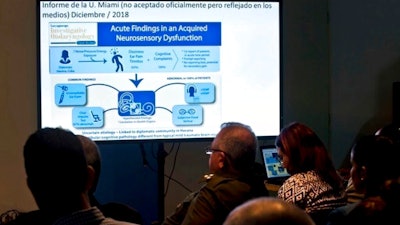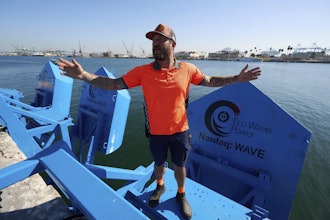
WASHINGTON (AP) — A new report by a National Academy of Sciences committee has found that “directed” microwave radiation is the likely cause of illnesses among American diplomats in Cuba and China.
The study commissioned by the State Department and released Saturday is the latest attempt to find a cause for the mysterious illnesses that started to emerge in late 2016 among U.S. personnel in Havana.
The study found that “directed, pulsed radio frequency energy appears to be the most plausible” explanation for symptoms that included intense head pressure, dizziness and cognitive difficulties. It found this explanation was more likely than other previously considered causes such as tropical disease or psychological issues. The study did not name a source for the energy and did not say it came as the result of an attack, though it did note that previous research on this type of injury was done in the former Soviet Union.
In its report, the 19-member committee noted that it faced significant challenges in trying to get to the bottom of the medical mystery. Among them, not everyone reported the same symptoms and the National Academy of Sciences research did not have access to all the previous studies on the illnesses, some of which are classified.
“The committee found these cases quite concerning, in part because of the plausible role of directed, pulsed radiofrequency energy as a mechanism, but also because of the significant suffering and debility that has occurred in some of these individuals,” said committee chairman David Relman, a professor of medicine at Stanford University. “We as a nation need to address these specific cases as well as the possibility of future cases with a concerted, coordinated, and comprehensive approach.”
The health effects were experienced by about two dozen Americans affiliated with the U.S. Embassy in Cuba as well as Canadian diplomats and personnel at the U.S. consulate in Guanghzhou, China, in early 2017.
Some of the Americans have been critical of the U.S. government's response to their health complaints and at least one has filed suit against the State Department.
Between late 2016 and May 2018, several U.S. and Canadian diplomats in Havana complained of health problems from an unknown cause. One U.S. government count put the number of American personnel affected at 26.
Some reported hearing high-pitched sounds similar to crickets while at home or staying in hotels, leading to an early theory of a sonic attack.






















